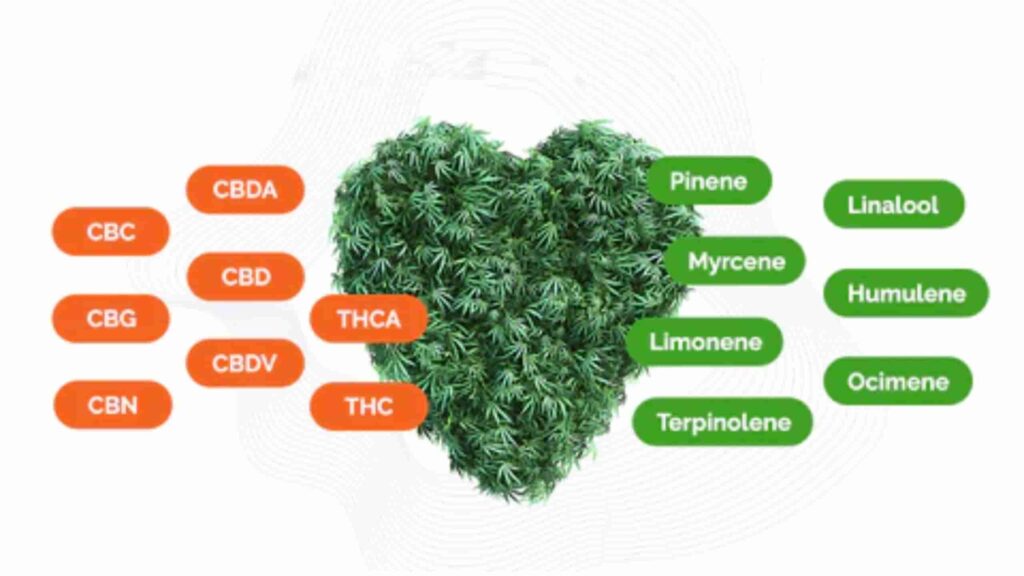Unveiling the Power of the Entourage Effect: A Holistic Approach to Medical Marijuana
In the world of medical marijuana, the entourage effect stands as a beacon, guiding researchers and patients toward a more nuanced understanding of the plant’s therapeutic potential. This concept revolves around the idea that the combined action of various compounds within the cannabis plant creates a synergistic effect, yielding therapeutic benefits that surpass what individual cannabinoids can offer. In this exploration, we delve into the entourage effect, comparing it with isolated THC and CBD to unravel the intricate dynamics that shape medical marijuana’s impact on health and well-being.
The Cannabis Compounds: THC, CBD, and Beyond
Cannabinoids, the chemical compounds exclusive to the cannabis plant, form the backbone of its medicinal properties. Tetrahydrocannabinol (THC) and cannabidiol (CBD) are two of the most studied cannabinoids. THC, notorious for its psychoactive effects, induces the euphoria or “high” associated with marijuana use. In contrast, CBD is non-psychoactive and has garnered attention for its potential therapeutic benefits without the euphoric state.
The Entourage Effect: Where Synergy Takes Center Stage
The entourage effect proposes that the combined presence of cannabinoids, terpenes, and flavonoids within the cannabis plant results in a therapeutic synergy that enhances the overall effect. When THC and CBD are consumed together, their interaction is believed to create a more balanced and nuanced therapeutic experience. CBD, for instance, has been shown to mitigate some of the adverse psychoactive effects of THC, making the overall experience more tolerable for users.
Terpenes and Flavonoids: Aromatic Allies in the Entourage
Terpenes, aromatic compounds found in various plants, contribute to the entourage effect by influencing the aroma, flavor, and therapeutic effects of cannabis. Myrcene, a prevalent terpene in many strains, is thought to enhance the sedative effects of THC, contributing to the relaxing qualities of specific cannabis varieties. Additionally, flavonoids, responsible for the plant’s pigmentation, possess antioxidant and anti-inflammatory properties, further enriching the entourage effect.
Isolated THC and CBD: Precision vs. Synergy
Isolating THC and CBD involves extracting these cannabinoids from the cannabis plant, offering precise dosing and standardized formulations. While this method addresses concerns related to consistency, it may come at the cost of reduced effectiveness by avoiding the entourage effect. Isolated THC is primarily associated with its analgesic properties, making it valuable for pain management, but the psychoactive effects may be overwhelming and undesirable for some. Isolated CBD, on the other hand, lacks the psychoactive nature of THC and is known for its anti-inflammatory and anti-anxiety properties. Yet, it might not be as potent as when combined with other cannabinoids and terpenes.
Exploring Therapeutic Applications: Epilepsy, Chronic Pain, and Beyond
The entourage effect has shown promise in various medical conditions. In epilepsy treatment, some patients have reported better outcomes with whole-plant extracts containing a mix of cannabinoids, as opposed to isolated CBD. Chronic pain management, a complex area with multifaceted symptoms, benefits from the entourage effect, where the combination of cannabinoids, terpenes, and flavonoids may result in more potent analgesic effects than isolated components. Anxiety management is also enhanced by the symphony of elements working together, providing better relief than individual molecules in an amazing natural dance.
Personalized Medicine: Tailoring Treatment with the Entourage Effect
Understanding the entourage effect opens avenues for tailoring medical marijuana treatments to the unique needs of individual patients. Different strains of cannabis, each with its unique combination of cannabinoids, terpenes, and flavonoids, provide a spectrum of options for patients seeking relief. This variability allows for a personalized approach, considering each individual’s specific symptoms, preferences, and sensitivities.
Conclusion: Navigating the Future of Medical Marijuana
As we navigate the future of medical marijuana, the entourage effect stands as a testament to the complexity and richness of the cannabis plant. While isolated THC and CBD showcase individual therapeutic benefits, the entourage effect suggests that the combined presence of various compounds offers a more comprehensive and potent approach to medical marijuana treatment. Research in this field continues to evolve, promising a deeper understanding of the specific interactions between cannabis compounds and paving the way for more targeted and effective therapeutic interventions. In embracing the entourage effect, we embark on a journey toward unlocking the full potential of medical marijuana for the benefit of patients worldwide.

Dr. Nicholas Marsh has been a respected board-certified anesthesiologist in Northern Virginia for over 35 years. Recognized as a top doctor by FindaTopDoc.com, his vision for providing top-quality medical services is driven by his passion for patient comfort and dignity.

